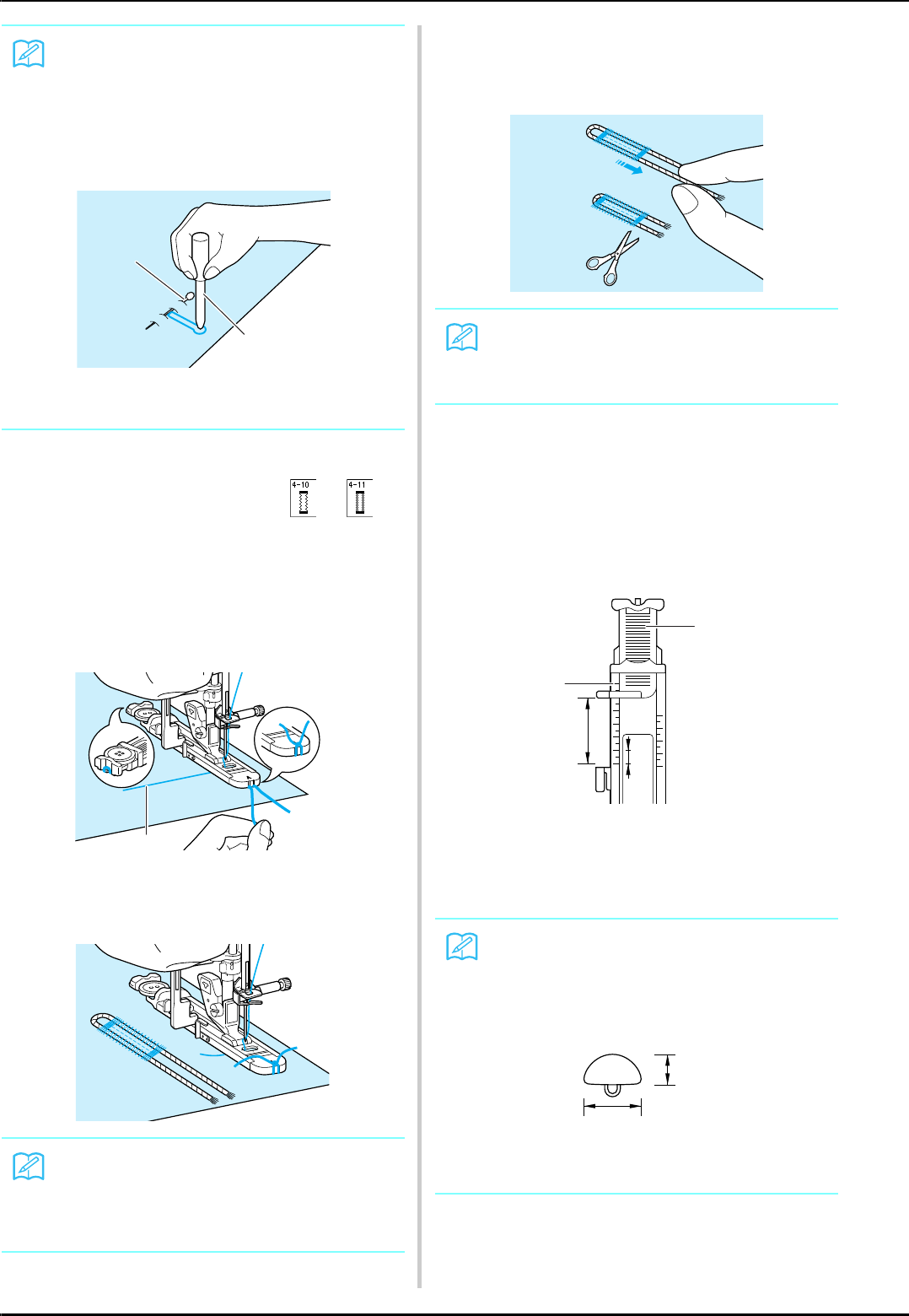
SEWING THE STITCHES
100
■ Sewing Stretch Fabrics
When sewing on stretch fabric with or ,
sew the buttonhole stitches over a gimp thread.
a
Hook the gimp thread onto the back of
presser foot “A”. Insert the ends into the
grooves at the front of the presser foot, and
then temporarily tie them there.
a Upper thread
b
Lower the presser foot and start sewing.
c
Once sewing is completed, gently pull the
gimp thread to remove any slack, and trim
off any excess.
■ Odd Shaped Buttons/Buttons that do
not Fit into the Button Holder Plate
Use the markings on the presser foot scale to set the
size of the buttonhole. One mark on the presser foot
scale equals 5 mm (approx. 3/16 inch).
Add the button diameter and thickness together, and
then set the plate at the calculated value.
a Presser foot scale
b Button holder plate
c Completed measurement of diameter + thickness
d 5 mm (approx. 3/16 inch)
Memo
For keyhole buttonholes, use the eyelet punch
to make a hole in the rounded end of the but-
tonhole. Then insert a pin along the inside of
one of the bar tacks, insert a seam ripper into
the hole made with the eyelet punch, and cut
towards the pin.
a Eyelet punch
b Basting pin
Memo
Set the width of the satin stitches to the width
of the gimp thread, and set the buttonhole
width to be 2-3 times the width of the gimp
thread.
a
b
a
Memo
After using the seam ripper to cut open the
threads over the buttonhole, trim off the
threads.
Memo
For example, for a button with a diameter of
15 mm (approx. 9/16 inch) and a thickness of
10 mm (approx. 3/8 inch), the scale should be
set at 25 mm (approx. 1 inch).
a 10 mm (approx. 3/8 inch)
b 15 mm (approx. 9/16 inch)
a
b
d
c
a
b


















